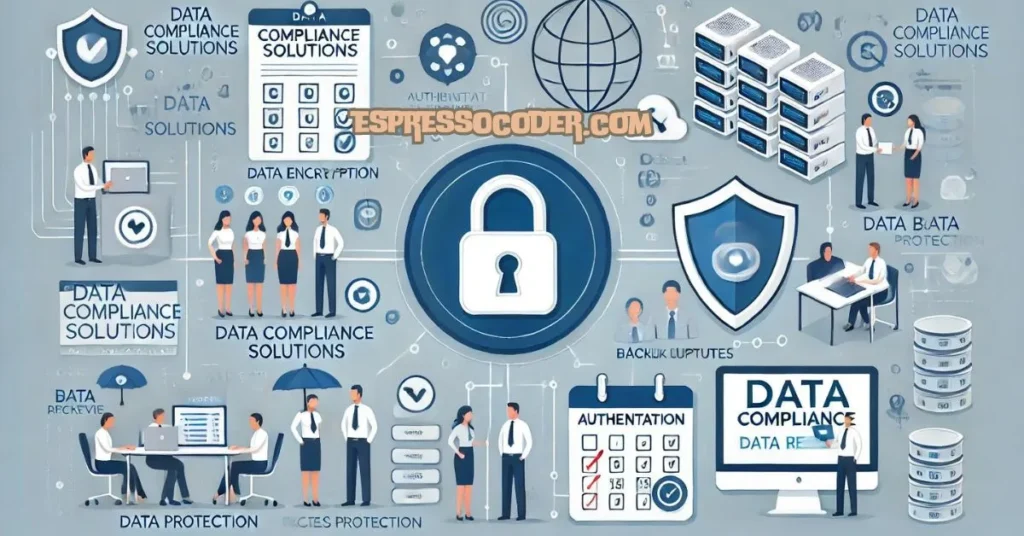Data breaches have become a growing concern for businesses and individuals in an increasingly interconnected world. The consequences of these breaches can be far-reaching, including financial loss, damage to reputation, and compromised personal information. However, organizations can greatly reduce the risk of data breaches with the right data compliance solutions. This post explores the importance of data compliance solutions and their role in preventing security incidents.
Contents
- 1. Understanding the Value of Compliance:
- 2. Identifying Regulatory Frameworks:
- 3. Implementing Encryption Techniques:
- 4. Employing Access Controls:
- 5. Conducting Regular Vulnerability Assessments:
- 6. Educating Employees on Security Protocols:
- 7. Monitoring and Incident Response:
- 8. Regularly Updating Software and Patch Management:
- 9. Data Backup and Disaster Recovery:
- 10. Partnering with Trustworthy Service Providers:
- Conclusion:
1. Understanding the Value of Compliance:
As businesses collect and store vast amounts of customer and employee data, it becomes imperative to prioritize data compliance. Compliance refers to adhering to relevant regulations and industry standards governing how organizations handle sensitive information. By implementing robust data compliance solutions, businesses can ensure they protect their customers’ information and their own reputation.
2. Identifying Regulatory Frameworks:
Several regulatory frameworks outline specific requirements for data protection across industries. For example, in Europe, the General Data Protection Regulation (GDPR) sets standards for personal data handling within EU member states. Similarly, in the United States, companies taking payments must adhere to Payment Card Industry Data Security Standard (PCI DSS) guidelines.
3. Implementing Encryption Techniques:
Encryption is crucial in securing sensitive data. It converts it into unreadable text or code that is only decipherable with an encryption key. It is worth considering creating organizational policies mandating encryption for certain data types, such as passwords or financial information.
4. Employing Access Controls:
One effective way to prevent data breaches is through access controls, which restrict unauthorized users’ access to sensitive information systems or databases containing valuable assets or personal information. Consideration should be given to implementing authentication mechanisms such as two-factor authentication (2FA) or biometric authentication methods.
5. Conducting Regular Vulnerability Assessments:
Regular vulnerability assessments help identify weaknesses in an organization’s IT infrastructure. Businesses can proactively implement more robust security measures and reduce risk by identifying vulnerabilities before malicious actors exploit them.
6. Educating Employees on Security Protocols:
Human error remains one of the leading causes of data breaches. Enterprises should prioritize comprehensive employee training programs to ensure that staff members are equipped with the knowledge to recognize potential threats, handle sensitive information securely, and follow proper security protocols.
7. Monitoring and Incident Response:
Implementing robust monitoring systems that provide real-time threat detection allows businesses to respond quickly to suspicious activities or attempts at unauthorized access. In addition, having an incident response plan enables organizations to minimize damage and mitigate the impact should a breach occur.
8. Regularly Updating Software and Patch Management:
Keeping software and systems up to date is crucial for maintaining strong security measures. Outdated software often contains vulnerabilities that hackers can exploit. Establishing a regular schedule for software updates and patch management is essential to ensure that critical security patches are applied promptly.
9. Data Backup and Disaster Recovery:
Data backup and disaster recovery plans are essential to any comprehensive data compliance strategy. Regular backups ensure data can be restored during a breach or other data loss incidents. Additionally, organizations must regularly test their disaster recovery plan to ensure its effectiveness in minimizing downtime and protecting valuable information.
10. Partnering with Trustworthy Service Providers:
Organizations rely on third-party service providers, such as cloud storage platforms or IT support services, to handle their data and infrastructure. When selecting these service providers, it is crucial to thoroughly evaluate their security measures and confirm their commitment to data compliance standards. Working with trusted partners can help ensure your organization’s sensitive information is safe.
Conclusion:
Data compliance solutions are not optional extras; they have become essential for businesses operating in today’s digital landscape. From regulatory frameworks to implementation best practices, organizations must invest time and resources to stay ahead of evolving data protection requirements. By implementing comprehensive data compliance solutions, including encryption techniques, access controls, regular vulnerability assessments, employee education, monitoring systems, and incident response plans, businesses can significantly reduce the likelihood of data breaches and protect their customers’ trust and brand reputation.

